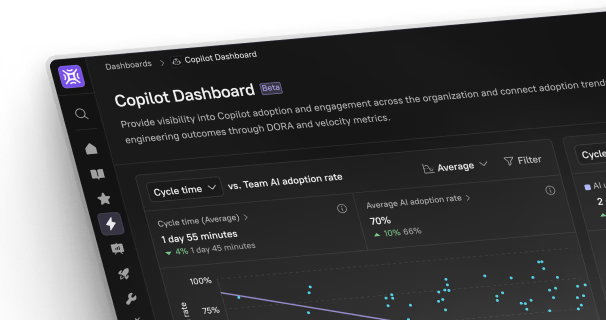Choosing the right partner for your digital journey can shape everything from daily routines to future growth. With so many different approaches and technologies to consider, each provider brings a unique mix of tools, strategies, and expertise to the table. Some focus on simple setups while others promise advanced features for complex needs. The differences in services, industry focus, and support could mean a perfect fit or a missed opportunity. Looking closer at these options might uncover solutions you never expected and help you discover what really matters for your organization.
Table of Contents
Singleclic

At a Glance
Singleclic is a focused digital transformation partner that treats digitalization as an ongoing journey rather than a one-off project. The firm combines ERP and CRM deployments with low-code development, BPA/BPM, AI analytics, and offshoring to deliver end-to-end programs for large, regulated organizations. Strengths include a clear industry focus on government, banking, and healthcare and a broad technical stack; limitations such as unspecified pricing and a wide service scope are presented as deliberate choices to serve enterprise-grade complexity.
Core Features
Singleclic delivers a tight set of capabilities aimed at comprehensive modernization: ERP and CRM implementations using Odoo and Microsoft Dynamics 365, business process automation and BPM for operational consistency, low-code development with Microsoft Power tools, AI-driven analytics for data deployment and decision-making, offshoring services to scale delivery, and industry-specific solutions tailored to banking, government, and healthcare. This mix lets organizations move from strategy to live operations with fewer integration gaps and more predictable outcomes.
Pros
-
Strong regional presence across MENA: Singleclic has an established foothold in the region, which reduces implementation friction and regulatory surprises for local clients.
-
Strategic platform partnerships: The company partners with platforms like Microsoft Dynamics and Odoo, enabling enterprise-grade ERP and CRM implementations that align with global standards.
-
Comprehensive solution breadth: Combining automation, CRM, ERP, AI, and industry-specific services lets clients centralize transformation under one roof.
-
Proven large-scale delivery capability: The team’s experience with complex, high-impact systems demonstrates capacity to handle multi-site, multi-user rollouts.
-
Strategy-led approach: Singleclic emphasizes strategic optimization, so technical work is mapped directly to operational outcomes rather than being purely tactical.
Who It’s For
This is a fit-for-purpose partner for government agencies, banks, and large healthcare organizations that require end-to-end digital transformation: ERP and CRM rollouts, process automation at scale, and analytics-driven decision support. If you lead a sizable institution that must comply with strict governance while modernizing operations, Singleclic is designed for you.
Unique Value Proposition
Singleclic’s distinctive value lies in combining deep industry focus with a full-stack delivery model: strategy, low-code development, enterprise ERP/CRM, BPA/BPM, AI analytics, and offshoring capabilities. That combination reduces vendor handoffs and accelerates time-to-value. Instead of offering point solutions, Singleclic aligns technology choices to institutional goals—minimizing integration risk and improving operational continuity. The company’s emphasis on a continuous digital journey means change management and ongoing optimization are built into engagements, not tacked on as optional extras. In short: you get a partner that designs for long-term, governed adoption rather than a short-term implementation checklist.
Real World Use Case
A typical deployment is implementing ERP and Dynamics-driven solutions for a national health organization to streamline patient administration, procurement, and reporting, while layering BPA for routine workflows and analytics for operational decisions.
Pricing
Not specified in the provided content.
Website: https://singleclic.com
Odoo

At a Glance
Odoo is an open source ERP and CRM platform that bundles a broad set of business applications into a single, integrated system. It offers both a free Community edition and a feature-rich Enterprise edition, making it suitable for cost-conscious teams as well as larger organizations needing extra services. If you want a highly customizable, all-in-one platform with a large developer ecosystem, Odoo is a serious contender — but expect investment in setup and skills to unlock its full value.
Core Features
Odoo provides a modular suite covering sales, CRM, inventory, manufacturing, accounting, HR, e-commerce and more, all designed to work together. It’s open source with a large community and an extensive app store that includes over 40,000 community apps. Multiple editions (Community and Enterprise) give you deployment flexibility, while Odoo Studio lets you design custom reports, screens, and webhooks. The platform emphasizes data ownership with open formats, transparent pricing, and claims fast performance with operations often completing in less than 90ms.
Pros
-
Open source nature allowing customization and extension: The platform’s code-access and community ecosystem let developers tailor functionality and integrate third-party modules.
-
Comprehensive suite of integrated applications: Odoo covers end-to-end business processes so you can centralize sales, inventory, accounting, HR, and e‑commerce in one system.
-
Flexible deployment options including cloud and on-premise: You can deploy Odoo in the cloud or host it on-premises to match security and infrastructure preferences.
-
Cost-effective with transparent pricing structure: The availability of a free Community edition and clear commercial pricing makes budgeting straightforward.
-
Support for multiple industries and business sizes: The modular design and large app ecosystem support everything from small shops to complex industry needs.
Cons
-
Complexity may require training or technical expertise for full utilization: Getting configured, integrated, and optimized typically needs skilled administrators or consultants.
-
Premium features and hosting options come at an additional cost: The Enterprise edition and managed hosting increase total cost compared with the free Community option.
-
Initial setup and customization can be resource-intensive: Tailoring workflows, migrating data, and deploying integrations consume time and project resources.
Who It’s For
Odoo is ideal for businesses of all sizes that need an affordable, customizable ERP and CRM platform with active community support. It fits organizations that want to avoid vendor lock-in, need flexibility between cloud and on-premise deployments, and have either in-house technical skills or access to implementation partners to manage customization.
Unique Value Proposition
Odoo’s unique value lies in combining open source freedom with an extensive marketplace and modular architecture, allowing organizations to assemble a tailored ERP stack without being forced into a single monolithic vendor approach. It balances transparency, customization, and breadth of functionality in a single platform.
Real World Use Case
A mid-sized retail chain uses Odoo to consolidate sales, inventory, customer relationships, and accounting across multiple stores. The unified system reduces manual reconciliation, streamlines stock replenishment, and centralizes reporting — delivering operational efficiency across locations.
Pricing
Starting at US$ 24.90 per user/month for the standard plan; enterprise and custom options are available with additional features and hosting choices.
Website: https://odoo.com
Intertec Systems

At a Glance
Intertec Systems is a seasoned IT services firm founded in 1991 that combines global reach with regional delivery, focused on digital transformation, cybersecurity, cloud services, and sustainability. The company brings depth—over 500 technology certifications and local delivery centers in five countries—to projects across the Middle East, India, Africa, and Europe. Its long-standing reputation and high reported customer satisfaction make it a reliable choice for large, regulated organizations. That said, pricing transparency and a clear product catalog are missing from the public site.
Core Features
Intertec offers end-to-end digital transformation services with strong emphasis on cybersecurity, cloud adoption, and sustainability initiatives. The firm supports industry-specific digital solutions and maintains regional delivery capability via five local centers, which helps reduce implementation friction. Their credentialing—more than 500 certifications—signals technical breadth across platforms and vendors. In short: strategy, secure engineering, and localized execution are the core of what they deliver.
Pros
-
Established track record: Intertec has been operating since 1991, providing a depth of experience that reduces risk on complex programs.
-
Regional delivery with global expertise: Local centers in five countries give projects on-the-ground support while leveraging international best practices.
-
Broad technical capability: Over 500 technology certifications indicate the ability to handle diverse cloud, security, and integration needs.
-
Industry-focused solutions: The company offers customized digital approaches for sectors like government, utilities, healthcare, and banking, which shortens time-to-value.
-
High customer satisfaction: Reported customer satisfaction above 90% suggests strong delivery and support performance.
Cons
-
Pricing not published: The website does not specify pricing, which makes initial budgeting and vendor comparison difficult for procurement teams.
-
No public product catalog: There is no clear, itemized product list or packaged offering visible online, which can slow vendor evaluation.
-
Potential integration complexity: Large, customized engagements may introduce integration challenges for clients without strong internal IT governance.
Who It’s For
Intertec is best suited to medium-to-large organizations and government entities seeking comprehensive digital transformation and cybersecurity programs, particularly in the GCC and neighboring regions. If you need a partner that can combine regional delivery with broad technical certifications and industry-specific experience, Intertec fits that profile.
Unique Value Proposition
Intertec’s strength lies in pairing global technical depth—evidenced by 500+ certifications—with localized delivery through regional centers. That combination reduces deployment risk for regulated sectors and large-scale programs while enabling tailored solutions for industry-specific needs.
Real World Use Case
A Gulf government agency contracted Intertec to implement digital government solutions aimed at improving citizen services and internal workflows; the engagement focused on secure, cloud-enabled platforms and process automation to enhance operational efficiency and service accessibility.
Pricing
Not specified on website
Website: https://intertecsystems.com
Raqmiyat

At a Glance
Raqmiyat is a seasoned digital transformation partner with more than 30 years of regional experience, offering end-to-end IT, analytics, cybersecurity, RPA, and digital services. The company’s strength is its breadth: it supports large, complex programs across banking, government, and enterprise sectors and partners with vendors like Alteryx to deliver analytics. That breadth comes with trade-offs — pricing and granular product details aren’t publicly listed, so procurement typically requires direct engagement. Still, for mid-to-large organizations seeking a single vendor to orchestrate transformation, Raqmiyat is a compelling option.
Core Features
Raqmiyat’s core capabilities cover the full lifecycle of enterprise change: implementation services and application support, customized solutions that incorporate emerging technologies, and cybersecurity offerings that include threat monitoring systems. Their analytics portfolio emphasizes enterprise data management and predictive analytics, and they provide RPA consulting and implementation to automate repetitive processes. Digital solutions and value-add services round out the stack, positioning Raqmiyat as a system integrator capable of combining multiple disciplines into a cohesive program.
Pros
-
Deep regional experience and credibility: Raqmiyat has over 30 years of industry experience, which provides institutional knowledge of regional regulatory, cultural, and operational nuances.
-
Comprehensive, multi-domain solutions: The firm delivers across cybersecurity, analytics, RPA, and traditional IT implementations, enabling end-to-end programs under one roof.
-
Strong regional presence and partnerships: Active partnerships, such as with Alteryx, and a long-standing Middle East footprint help accelerate adoption and local support.
-
Proven track record with large client base: Serving more than 550 organizations demonstrates scalability and repeatable delivery for sizable programs.
-
Blend of consulting and managed support: Offering implementation plus application support and maintenance helps reduce vendor handoffs and sustain outcomes.
Cons
-
Pricing not disclosed on the website, which complicates initial budgeting and vendor comparisons.
-
Public-facing product detail is limited, making it hard to assess specific technology stacks or pre-built IP without direct conversations.
-
Wide service scope can require careful scoping to avoid overbroad engagements that don’t match precise business needs.
Who It’s For
Raqmiyat is best for mid-size to large enterprises and public-sector organizations in the Middle East that need an experienced systems integrator to design, implement, and operate multi-disciplinary digital transformation programs. If you’re looking for a single partner to align cybersecurity, analytics, and automation under governance and support, Raqmiyat fits that profile.
Unique Value Proposition
Raqmiyat’s unique value is its combination of long-standing regional expertise, broad technical scope, and local delivery capabilities. Rather than piecing together multiple vendors, organizations can leverage Raqmiyat to orchestrate end-to-end initiatives — from predictive analytics models to RPA deployments and ongoing application support.
Real World Use Case
A leading bank in Dubai implemented Raqmiyat’s ICCS corporate solution to remotely scan physical cheques. The deployment reduced turnaround times and resource consumption, and Raqmiyat provided 24/7 support to ensure continuous operations — a clear example of combining digital capture, operational process redesign, and managed services.
Pricing
Not specified on the website.
Website: https://raqmiyat.com
Alnafitha IT Solutions

At a Glance
Alnafitha IT Solutions is a Saudi-based, full-service IT provider focused on cloud, cybersecurity, and business application automation. With a large local footprint and a history of thousands of customers, it positions itself as a pragmatic partner for organizations pursuing digital transformation. The company combines strategic planning with hands-on deployment and ongoing support, which reduces vendor handoffs and project friction. Straightforward. Reliable.
Core Features
Alnafitha bundles cloud and digital innovation capabilities with enterprise strategy work—meaning they help define migration roadmaps and then execute them. Their offering includes cloud services and data analytics, AI-enabled communication platforms for real-time collaboration, volume licensing and Microsoft enablement, and modern workplace security. They provide end-to-end IT service management from assessment through deployment and sustained support, and they offer cybersecurity solutions alongside business application automation using Zoho tools. In short: strategy, migration, protection, and automation all under one roof.
Pros
-
Proven local track record: Alnafitha has delivered reliable IT services across Saudi Arabia and counts over 7,000 trusted customers, which demonstrates operational scale and client trust.
-
Comprehensive solution set: The company covers cloud, analytics, cybersecurity, collaboration, and business apps, reducing the number of vendors you need to manage.
-
End-to-end delivery model: From resource assessment to deployment and support, Alnafitha manages the full lifecycle of projects, helping ensure smoother handoffs and accountability.
-
Strong local presence: A Saudi-based support team means faster response times and regional knowledge for organizations operating in-country.
-
Established partnerships: Long-term relationships with more than 65 technology companies indicate access to a broad partner ecosystem and varied implementation options.
Cons
-
Pricing transparency is limited because the website does not specify detailed pricing, which can slow procurement decisions for budget-conscious buyers.
-
Technology and certification details are not fully enumerated on the public site, leaving questions about specific vendor certifications and deeper platform specializations.
-
No clear statement of international coverage is provided, so organizations with multi-country operations should verify support scope beyond Saudi Arabia.
Who It’s For
Alnafitha is best for Saudi Arabian enterprises and government entities looking to modernize operations, strengthen cybersecurity, and migrate workloads to the cloud with a single trusted vendor. If you want local delivery, long-term support, and a partner that can both plan strategy and execute technical work, this company is relevant to your needs. Expect pragmatic, regionally tuned solutions.
Unique Value Proposition
Alnafitha’s unique strength is its combination of deep local presence, a wide partner ecosystem, and a full lifecycle delivery model—from strategy to sustained support—backed by a large customer base. That blend reduces implementation risk and simplifies vendor management for organizations undergoing digital transformation.
Real World Use Case
A Saudi manufacturing firm engaged Alnafitha to migrate its on-premises systems to the cloud, implement cybersecurity controls, and automate back-office workflows with Zoho business applications—resulting in improved operational efficiency and stronger security posture.
Pricing
Not specified on the website
Website: https://alnafitha.com
Al Moammar Information Systems (MIS)

At a Glance
Al Moammar Information Systems (MIS) positions itself as a full‑stack IT partner for large enterprises and government bodies in Saudi Arabia, focusing on digital infrastructure, cybersecurity, AI, cloud, and platform integration. The company emphasizes strategic partnerships and industry engagement, and its growing revenue and public‑sector deployments suggest credible delivery capability. If you need enterprise‑scale transformation delivered with vendor alliances and public‑sector experience, MIS is worth evaluating. That said, expect a consultative sales cycle rather than an off‑the‑shelf purchase.
Core Features
MIS bundles five core capabilities: artificial intelligence solutions, predictive IT service management, cloud solutions to scale digital capabilities, managed cybersecurity services, and digital platform development and integration. These offerings point to an end‑to‑end approach — from designing AI‑driven insights and automating IT operations to hosting workloads in the cloud and securing them with managed defenses. The emphasis on platform integration suggests MIS can link disparate systems across transport, healthcare, finance, and manufacturing sectors without forcing radical process changes.
Pros
-
Comprehensive industry coverage: MIS provides a wide range of IT solutions that are explicitly tailored for multiple industries, which helps enterprises find sector‑specific best practices rather than generic one‑size‑fits‑all answers.
-
Strong vendor and strategic partnerships: The company’s alliances with technology vendors improve access to validated architectures and accelerated implementations, reducing integration risk for large programs.
-
Growing business footprint: Increasing revenue and active participation in industry events indicate market momentum and organizational stability, important when you entrust mission‑critical infrastructure.
-
Public‑sector credentials: Demonstrated experience in government projects positions MIS well for regulatory adherence and stakeholder management in large, bureaucratic environments.
-
Focus on digital transformation and innovation: A clear emphasis on AI, cloud, and platform integration signals a forward‑looking roadmap rather than legacy IT maintenance.
Cons
-
Limited product detail available: The website and materials do not publish granular technical specifications or packaged product sheets, making initial technical evaluation difficult.
-
No transparent pricing: Pricing is not specified on the website, which means procurement will likely require formal engagement and custom quotes.
-
Potential complexity for smaller firms: The bespoke, enterprise‑grade solutions and integration focus could prove overly complex or costly for small or early‑stage companies.
Who It’s For
MIS is best suited to large enterprises and public sector organizations in Saudi Arabia that require integrated digital transformation programs — think ministries, national utilities, large manufacturers, and enterprise healthcare providers. If your organization needs vendor‑backed architectures, strong compliance controls, and an integrator that can coordinate multi‑vendor projects, MIS matches that profile.
Unique Value Proposition
MIS differentiates itself through enterprise reach: combining AI and predictive ITSM with managed cybersecurity and cloud integration under a single integrator umbrella. That consolidation reduces vendor management overhead and accelerates end‑to‑end delivery for complex, regulated projects.
Real World Use Case
MIS’s deployment of the Ameer service management system for the Ministry of Sports demonstrates their ability to deliver public‑sector digital management platforms — from requirements to implementation and operations support — in a government context.
Pricing
Not specified on the website.
Website: https://mis.com.sa
Digital Transformation Partners Comparison
The table below compares key features, pros, cons, target audience, and pricing of several digital transformation service providers. This overview helps organizations select a suitable partner for digital transformation needs.
| Company | Core Features | Pros | Cons | Pricing |
| Singleclic | ERP & CRM, Low-Code, BPA/BPM, AI Analytics, Offshoring | Strong MENA presence, Strategic partnerships, Comprehensive solutions | Unspecified pricing, Broad service scope | Not specified |
| Odoo | Modular ERP/CRM, Open Source, Odoo Studio | Customizable, Integrated applications, Cost-effective | Requires expertise for full use, Premium features cost extra | Starting at $24.90/user/mo |
| Exceeders | IT Support, Talent Management, Educational Academy, Account-Based Access | Global presence, Comprehensive IT resources, Talent development | Limited service details, Broad scope requires navigation | Not specified |
| Intertec Systems | Digital Transformation, Cybersecurity, Cloud Services, Sustainability | Established track record, Regional delivery, Technical capability | No pricing published, No public product catalog | Not specified |
| Raqmiyat | IT, Analytics, Cybersecurity, RPA, Digital Services | Deep regional experience, Comprehensive solutions, Proven track record | Pricing undisclosed, Limited product detail | Not specified |
| Alnafitha | Cloud and Cybersecurity, Business Application Automation, IT Service Management | Proven local track record, End-to-end delivery, Strong local presence | Limited pricing transparency, Technology details not fully publicized | Not specified |
| Al Moammar MIS | AI Solutions, IT Service Management, Cloud Solutions, Cybersecurity, Platform Integration | Comprehensive industry coverage, Strong vendor partnerships, Growing footprint | Limited product detail, No pricing transparency | Not specified |
Accelerate Your Business Automation Journey with Expert Digital Transformation
The challenges highlighted in “Best 7 Business Automation Tools – Expert Comparison 2025” center around streamlining complex ERP and CRM systems, automating business processes effectively, and ensuring seamless integrations without operational disruptions. If you are seeking a trustworthy partner that understands these pain points and offers strategic, end-to-end solutions tailored for large-scale, regulated organizations, Singleclic is here to help. We specialize in Microsoft Dynamics 365 implementations and low-code development that drive real business value while maintaining clarity and quality every step of the way.
Our proven track record includes managing over 80 sites and 4000 users in partnership with the Ministry of Health UAE, demonstrating our capability to deliver enterprise-grade business process automation that actually works. By following a disciplined project flow of inception, requirements management, solution development, and quality assurance, we ensure your digital transformation is smooth and sustainable.
Discover how our focus on Digital transformation solutions, ERP and CRM deployments, and business process management can elevate your automation strategy today.

Looking to transform your business processes with confidence and expert support? Visit Singleclic now to explore how our tailored solutions can help you automate efficiently and scale with ease. Learn more about our Microsoft Dynamics 365 ERP implementations and our comprehensive approach to business process management. Don’t wait to unlock your organization’s full potential.
Frequently Asked Questions
How can business automation tools help streamline my operations?
Business automation tools can significantly improve operational efficiency by automating repetitive tasks. Start by identifying processes that consume a lot of time, such as data entry or reporting, and implement automation solutions to handle those tasks, potentially reducing manual efforts by ~30%.
What features should I look for in the best business automation tools?
When selecting business automation tools, look for features such as integration capabilities, user-friendly interfaces, and customization options. Prioritize tools that can easily connect with your existing systems, making it simpler to automate workflows and share data across platforms.
How do I measure the effectiveness of business automation tools?
To measure the effectiveness of business automation tools, track key performance indicators (KPIs) such as time saved, cost reduction, and error rates before and after implementation. Set specific metrics, like aiming for a 20% decrease in process execution time within the first quarter of use, to gauge success.
What types of tasks are best suited for automation in business?
Tasks best suited for automation include routine data entry, customer relationship management, and marketing campaigns. Identify high-volume tasks that have defined procedures, as automating these can lead to greater efficiency and allow your team to focus on strategic initiatives.
How can I ensure a smooth transition to using business automation tools?
To ensure a smooth transition, start with a thorough assessment of your current processes and choose automation tools that align with your specific needs. Provide training for your team, and consider implementing the tools in phases to address any challenges without overwhelming your staff.
Is there a learning curve with implementing business automation tools?
Yes, there is often a learning curve when implementing business automation tools, especially if they are complex. Facilitate this by providing ample training and support for your team, aiming for them to feel comfortable and efficient with the new tools within 30 days.









